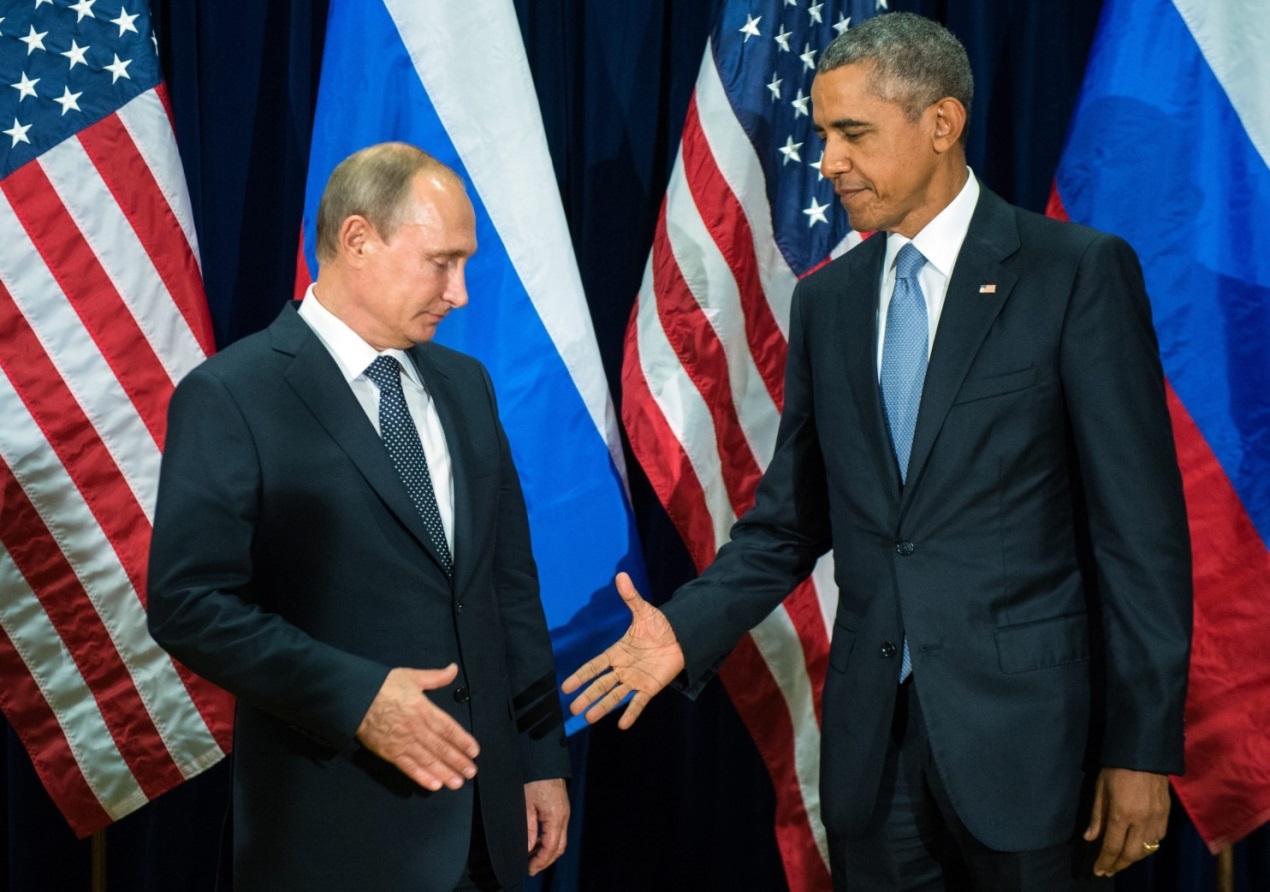The Washington Post
President Obama and Russian President Vladimir Putin, in a telephone call Wednesday, agreed they were ready to intensify military coordination in Syria, according to a Kremlin statement.
“Both sides reaffirmed their readiness to increase the military coordination of Russian and U.S. actions,” it said, according to a translation by the Russian news agency, Interfax.
The call, initiated by Putin, came as the Syrian military said it would begin a 72-hour truce in the country’s long-running civil war to honor the Eid holiday marking the end of the Muslim holy month of Ramadan. Syrian rebels reportedly agreed to the truce, although fighting continued.
Secretary of State John F. Kerry said he hoped the truce initiative was an “outgrowth” of talks in which the United States is trying to persuade Russia to press its ally, Syrian President Bashar al-Assad, to stop bombing civilians and opposition groups seeking to oust him. Kerry spoke during a visit to Tblisi, Georgia.
The administration last week offered to help Russia improve its own air targeting against terrorist groups, including the Islamic State, if it would rein in Assad. In Wednesday’s call, the Kremlin said, Putin “urged” Obama to work harder to separate U.S.-backed opposition groups from the forces of Jabhat al-Nusra, al-Qaeda’s Syrian affiliate.
U.S. officials have said they are willing to discuss additional coordination in their so-far separate counterterrorism operations in Syria, but remain unsure if Russia would pressure Assad and that no decisions have been made.
The White House made no mention of increased coordination with Russia in its own statement about the Putin call. Obama, it said, “emphasized his concerns over the failure of the Syrian regime to comply with the cessation of hostilities in Syria,” referring to a truce that was negotiated under U.S.-Russian auspices in February, but has since largely fallen apart under intensified Syrian and Russian bombing.
“President Obama stressed the importance of Russia pressing the Syrian regime for a lasting halt to offensive attacks against civilians and parties to the cessation, noting the importance of fully recommitting to the original terms of the cessation,” which was signed by Assad and opposition groups, but excluded the Islamic State and Jabhat al-Nusra.
Russia has long been eager to expand its military cooperation with the United States, a goal that administration officials attribute to Putin’s desire for increased status on the world stage. While both oppose the Islamic State and agree that Syria’s separate civil conflict undermines efforts to destroy the terror group, they have vastly different prescriptions — centering on whether Assad stays or goes — for resolving it.
Both Obama and Putin, their statements said, called for progress on negotiations toward a political solution to the Syrian conflict.
Both also said they discussed efforts to settle the lengthy conflict between Azerbaijan and Armenia over the disputed territory of Nagorno-Karabakh. Russia said Obama “highly praised” Russia’s efforts to resolve the dispute, while the White House said only that Obama “expressed his readiness to intensify efforts together with Russia and with France,” co-chairs of an international push for resolution.
On Ukraine, the White House said, Obama “urged” Putin to quell increased fighting that the administration blames on Russian-backed separatists, and “stressed the urgent importance” of moving forward with international agreements. The Kremlin said Putin called for intensification of cease-fire efforts, for which Russia holds the U.S.-backed government responsible.

